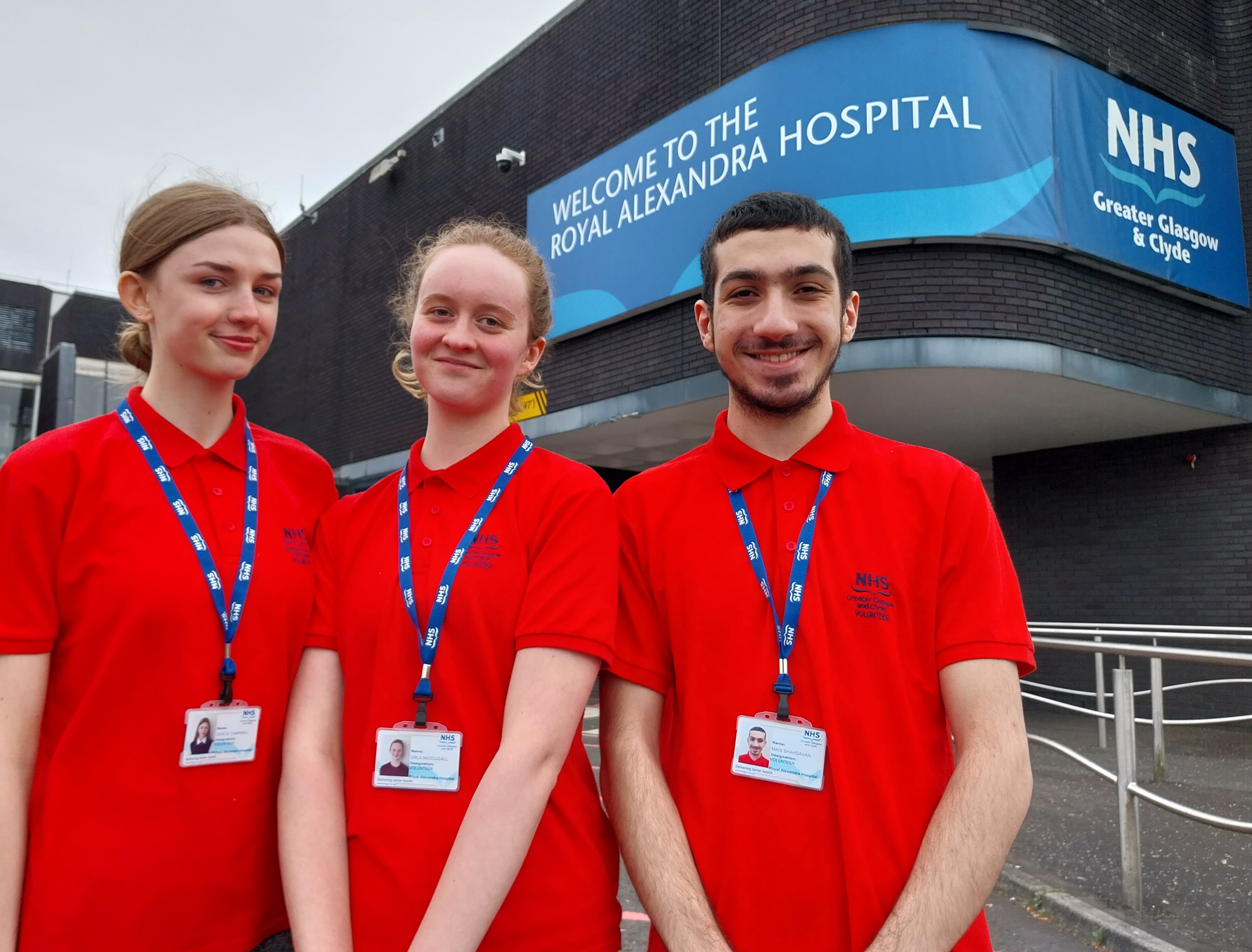How to become a clinical physiologist in neurophysiology
To become a neurophysiology practitioner, you can apply for trainee opportunities on our recruitment website. Another route is to complete an undergraduate honours degree at university.
What is a clinical physiologist in neurophysiology?
Neurophysiology practitioners investigate the function of the central and peripheral nervous systems. Specialist equipment to help diagnose and monitor neurological conditions, such as epilepsy, multiple sclerosis, and carpal tunnel syndrome. They also map and monitor neurological function during orthopaedic and neurosurgery.
Starting your career as a clinical physiologist in neurophysiology
Choosing subjects at school
If you’re interested in a career as a clinical physiologist in neurophysiology, useful school subjects include:
- English
- Biology
- Maths
- Physics
- Computing Science
Speak to your guidance teacher or careers adviser about subjects offered at your school.

Workplacements and volunteering
You may find it helpful to get some healthcare experience by doing a work placement or volunteering. You’ll get training, increase your knowledge, and learn new skills. This could help you when applying to college, university, or a new job with NHSScotland.
Education and training pathway
There are different education and training pathways to becoming a clinical physiologist in neurophysiology. Whichever route you choose, you must complete an undergraduate degree programme.
Clinical physiology undergraduate training programme
A widely recognised route is to complete an undergraduate-level training programme.
As a trainee, you’ll be employed by an NHSScotland Health Board while you complete an undergraduate honours degree programme at SCQF level 10.
You’ll also receive training within the department to provide you with the skills, knowledge, and experience you’ll need to become a clinical physiologist in neurophysiology.
When you complete training, you can register as a healthcare science practitioner with the Academy for Healthcare Science (AHCS).
Other work-based training programmes
Some health boards offer alternative work-based training programmes if you already have an undergraduate honours degree in Healthcare Science (Neurophysiology) at SCQF level 10. Other science degree subjects may be accepted.
Search for undergraduate science degree programmes on My World of Work.
As a trainee, you’ll complete a 3-year practical and theoretical training programme. You’ll then apply for AHCS registration via the practitioner equivalence route.
You can apply for all training opportunities on our recruitment website.
Academy for Healthcare Science
The Academy for Healthcare Science (AHCS) maintains voluntary registers for healthcare science professions not covered by statutory registration and regulation. These registers are accredited by the Professional Standards Authority for Health and Social Care (PSA).
When you qualify as a cardiac clinical physiologist, you can register with the AHCS as a healthcare science practitioner.
Get to know the role
As a neurophysiology practitioner, you’ll help to diagnose and monitor patients of all ages with neurological conditions.
Some typical investigations include:
- Electroencephalograms (EEGs), which record the electrical activity in the brain and are used to diagnose and monitor epilepsy. This may be in an outpatient clinic, on wards and in ICU.
- Evoked potentials, which record the behaviour of the brain in response to stimulus and are used to help diagnose conditions like multiple sclerosis.
- Electromyography (EMG), which assesses nerve and muscle function and helps to diagnose motor neurone disease.
- Nerve conduction studies (NCS), which assess nerve function and are used to diagnose conditions such as carpal tunnel syndrome.
You’ll need these skills:
- collaborating
- focussing
- communicating
- decision-making
- leading
- sense-making
You’ll work with:
- doctors specialising in clinical neurophysiology
- neurologists
- neurosurgeons
- nurses
- audiologists
- ophthalmic and vision scientists
As a clinical physiologist in neurophysiology, you could work in:
- clinics
- intensive care
- operating theatres
Learning and development
Once you’ve become a registered neurophysiology practitioner, there are ongoing requirements for education and skills development. You’ll have lots of opportunities to go further and learn more.
Career progression
With training and experience, you could move into a specialist, supervisory, or management role, such as a neurophysiology service manager.
Clinical scientist equivalence recognition
Clinical physiologists in neurophysiology can apply to become clinical scientists to progress in their careers.
If you already have significant professional NHS experience in neurophysiology or have completed a training programme that does not directly lead to registration as a clinical scientist, you can apply for equivalence recognition.
It is a route you can take to demonstrate that you already have the skills, knowledge, and experience to become a clinical scientist in neurophysiology.
You’ll submit a portfolio of work to the AHCS or the Association of Clinical Scientists for assessment and attend an interview. If successful, you can register with the Health and Care Professions Council as a clinical scientist.
Find out more about clinical scientist training and equivalence recognition on the NHS Education for Scotland Healthcare Science website.
Professional bodies
Once you become a clinical physiologist in neurophysiology, you can register with these professional bodies:
- Academy for Healthcare Science (AHCS)
- Association of Neurophysiological Scientists (ANS)
- British Society for Clinical Neurophysiology
- British Society for Intraoperative Neurophysiology
Navigate page

Careers in healthcare science
Discover the range of healthcare science careers you can choose in the NHS.
Healthcare science
NHSScotland Careers blog
Our blog includes how-to guides, case studies, and career resources.
Discover more